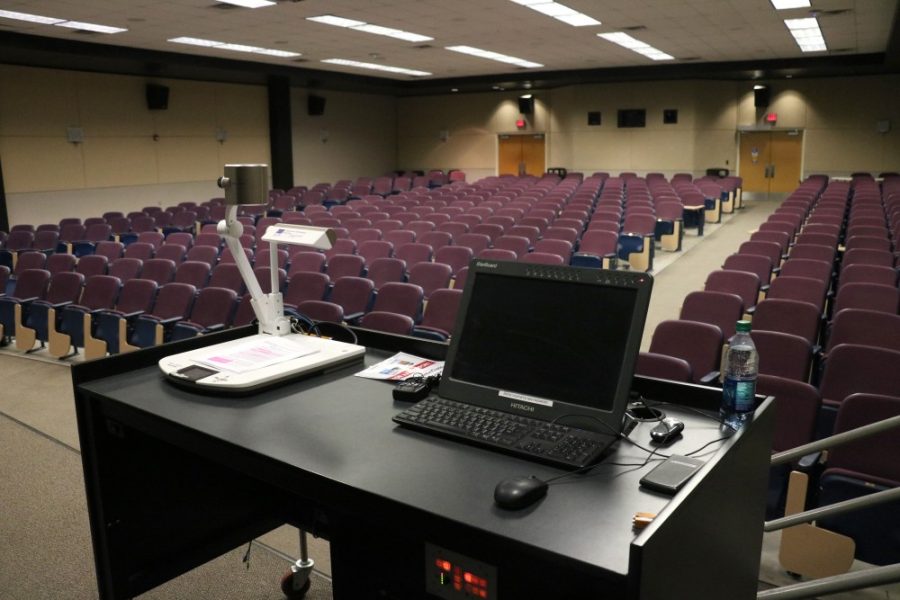As August has slipped away into a moment in time, school is officially back in session. Per syllabus disclaimers and curious students inquiring from the back of class, attendance policies have become the forefront of discussions held during initial class meetings. Whether your class meets Monday and Friday or has a flex-in-person modality, the attendance policy can have a lot of influence over a student’s success. Per the official statement on attendance during these unprecedented times, Liesl Folks, the senior vice president for Academic Affairs and provost stated, “I ask that the faculty make every effort to provide reasonable accommodations for students who cannot come to class due to illness.” This is a great step and is achievable when professors are able to offer effective ways for students to play “catch-up” after missing a few classes.
During the fully-online modality we experienced in past semesters, students were easily able to “catch up” on lectures and focus on material on their schedule. This could alleviate the stress of having to miss class for personal reasons other than COVID-19. While I’m not advocating for online learning again, I’m simply extending gratitude towards the way in which “catching up” was made so convenient. Professors that are taking the extra step to record their in-person lectures are providing students with an opportunity that is invaluable. That opportunity is the chance to put their health first (mental and physical) and come to class when they can fully participate in the classroom. This is also a great tool to use when studying for exams as you can review exactly what was said in class.
RELATED: OPINION: Discord is going to revolutionize classroom communication
Will these recorded lectures continue in a COVID-19 free classroom? Alongside this issue lies the issue of whether professors will reinstate attendance penalties. While strict attendance policies keep students coming to class, it does not ensure they stay engaged. In an article published through UC Berkeley, Rita-Marie Conrad outlined key points to consider when valuing the importance of mandating attendance. The tips are as follows:
“Tip #1 – Help students understand the importance of attendance.
Tip #2 – Make class worth attending.
Tip #3 – Make students accountable not just for attending, but for learning something.”
In one of my classes if you actively participate and answer questions you are awarded extra credit, instilling an incentive for students to come to class. While students shouldn’t need to be given an incentive to come to class, it keeps students engaged and encourages them to stay on task and be accountable for the material. Even fun activities that frame the material in an obscure or interesting way can attract the attention of students and keep them returning. Sharon Lauricella and T. Keith Edmunds state in “A Serious Look at Fun in College Classrooms” that, “fun experiences are less difficult for the mind to process – they carry a lower cognitive load. Greater levels of cognitive load are equated with decreased learning due to processing demands.” This increased engagement can keep students coming to class and can eliminate illegitimate excuses.
With strict attendance policies, instances arise where students have to decide if their personal struggles hold more precedent over attending class. When a student struggles with mental health issues, there is no schedule for when they are at their worst or dealing with something heavy. Having attendance policies that penalize students after missing a certain amount of classes puts them in the position of choosing to attend class or prioritize their wellbeing.
I’ve thankfully had professors that prioritize a student’s wellbeing and it was an incredible relief and truly made a difference. Last semester I experienced the passing of a close family member and didn’t feel that I had anyone at school to share it with. I couldn’t fathom sitting through a lecture and attempting to participate. Thankfully, a handful of my professors that semester created a safe space where I felt that I could share this with them in order to excuse myself from class. It made all the difference for me in those weeks and makes me think about the students who weren’t provided the reassurance that they could go to their professors for extensions or class excuses for personal reasons.
By not providing this resource, students are put in a position where they are deciding between their academics and their health. Students should feel that they can take a step back for a moment; there shouldn’t be a rigorous attendance policy standing in the way of their mental health. If professors have the chance to create a space in their classroom that allows students to actively participate in an engaging manner while providing them with a chance to take a moment for themselves, I encourage them to utilize it.
Follow Maggie Landon on Twitter

Maggie Landon (she/her) is a finance major at the University of Arizona. She loves to read and vibe with her cat Rizzo.









